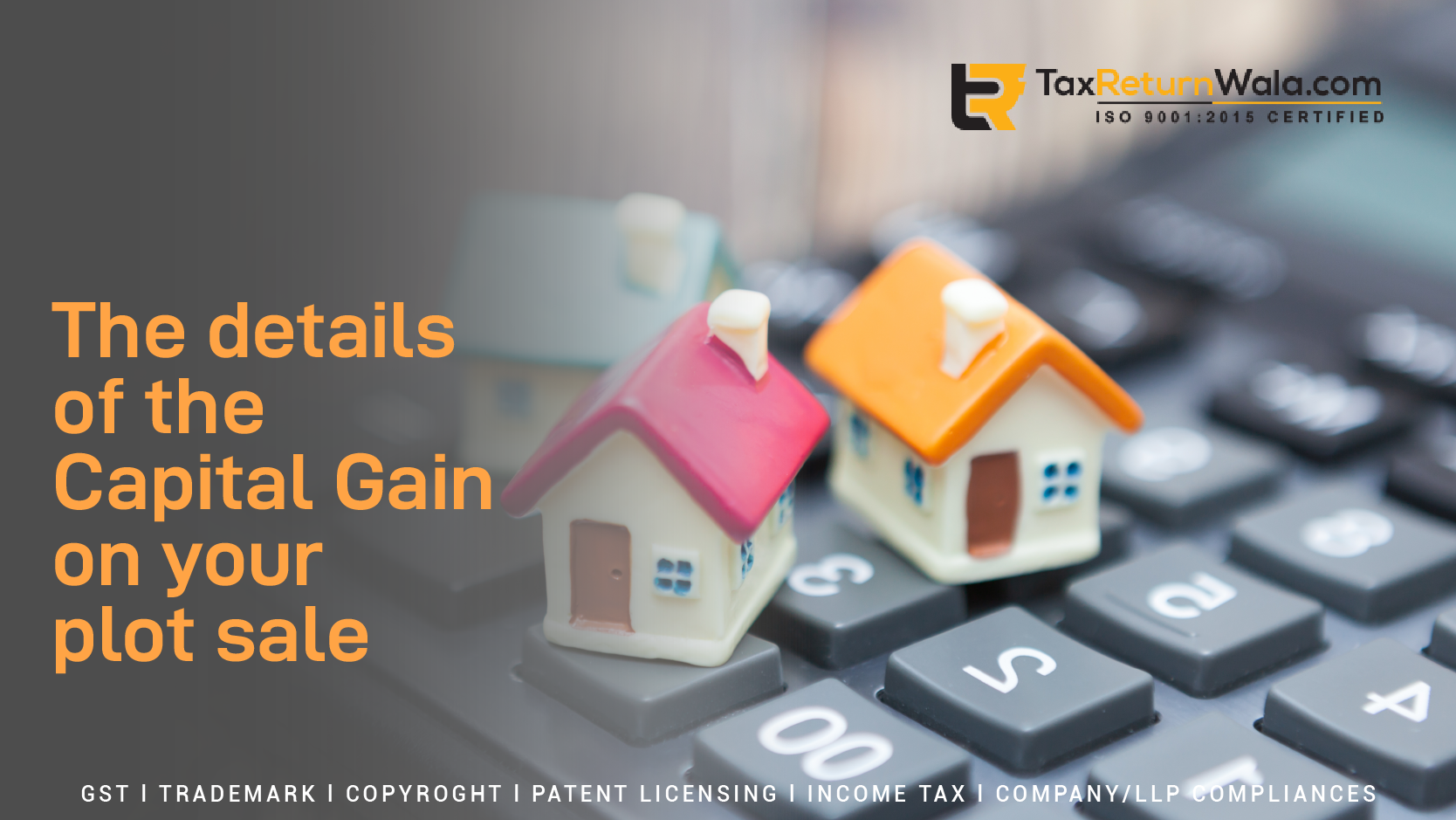Details of Capital Gain on your plot sale: Taxation Aspect
The purchase of a plot of land is often title as one that will lead you towards riches. It is being considered as a commendable investment plan. Acknowledging the fact, the gains through the sale of a plot are huge, it is also essential to dive into the details of the capital gain that you would have to deal with on your plot sale.
Putting aside, a part of your earned profit is surely not, what anyone would appreciate doing. Therefore, saving on the long-term capital gain tax is a priority. In this blog, we shall be focussing on the considering taxation aspects of transactions in the sale of the plot.
A capital asset held for a period of more than 36 months immediately preceding the date of transfer known as a long-term capital asset.
The period of 36 months is to read as 12 months to the following exceptions:
- security (other than a unit) listed in a recognized stock exchange in India or a unit of the Unit Trust of India established under the Unit Trust of India Act, 1963 (52 of 1963) or a unit of an equity oriented fund or a zero-coupon bond;
- a share of a company (not being a share listed in a recognized stock exchange) or a unit of a Mutual Fund specified under clause (23D) of section 10, which is transferred during the period beginning on the 1st day of April 2014 and ending on the 10th day of July 2014
Moreover, the period 36 months is to read as 24 months in the following cases:
- a share of a company (not being a share listed in a recognized stock exchange in India), or
- An immovable property, being land or building or both.
Know about Long Term Capital Gain (LTCG) tax:
Assume that you own a plot of land and decide to sell it after five years from the date of purchase. The decision to sell with the advantage of a huge profit. In this case, the tax that you will have to pay on this profit will be termed as the long-term capital gains tax (LTCG).
By law, you should hold the possession of the plot of land for more than 2 years to make it qualify the long-term capital gain period. Long-term capital gains tax at 20% with indexation benefit. The clause of indexation benefit is for long term capital gains that can help you reap the benefits of lower tax.
Do not want to pay LTCG?
Section 54F of the Income Tax Act, 1961 is at your aid to cover you for profits on long-term capital gains by the sale of your plot of land. You can opt in to sell your plot for a long-term capital gain and you can save on taxes by investing the obtained profit in a residential house or apartment. Alternatively, you can also claim a tax exemption under section 54F on the long-term capital gain; thus, obtained by the sale of any long-term asset other than property or residential house.
The long-term capital gain is exempt if the gain invests by the assessee in purchasing a residential house or property within a year or within two years before the sale of the plot of land. Alternatively, if you opt in to construct a residential house within a duration of three years after selling the plot of land then you can avail the LTCG exemption.
Savings on LTCG using Section 54 F
- In the event of the long-term capital gain obtained by selling the plot of land being less than or equal to the cost of the new apartment or residential house purchased by you then the entire capital gain is exempted from tax.
- If the sale of your plot of land yields, a long-term capital gain that is greater than the cost of the new residential apartment or house purchased by you then the amount up to the price of the new house will be allowed as a tax exemption on the capital gain. The amount exceeding the cost of the new purchase is going to be tax at 20% with the inclusion of indexation benefits.
- You can invest in the long-term capital gain in a residential house or apartment strictly located in India irrespective of how much capital gain is.
What to do if investing immediately is not an option
You can invest your long-term capital gain in a Capital Gains Account Scheme (CGAS) before the due date of filing your income tax returns. This money can be easily withdrawable then and invested in residential or apartment purchase within the specified duration of three years.
Within this period if you fail to buy or construct a new house then the money not used (invested in capital gains account scheme) will be taxed as long-term capital gain in the financial year that is three years following the year of sale of the plot. Purchasing a plot of land and selling it for high profits might seem an easy walk that you can handle on your own. Nevertheless, when it comes to managing the long-term capital gains saving yourself from high taxation, you might require our exemplary services to guide you in the most beneficial ways.
For more information or filing your taxes, you can reach us at info@taxreturnwala.com


